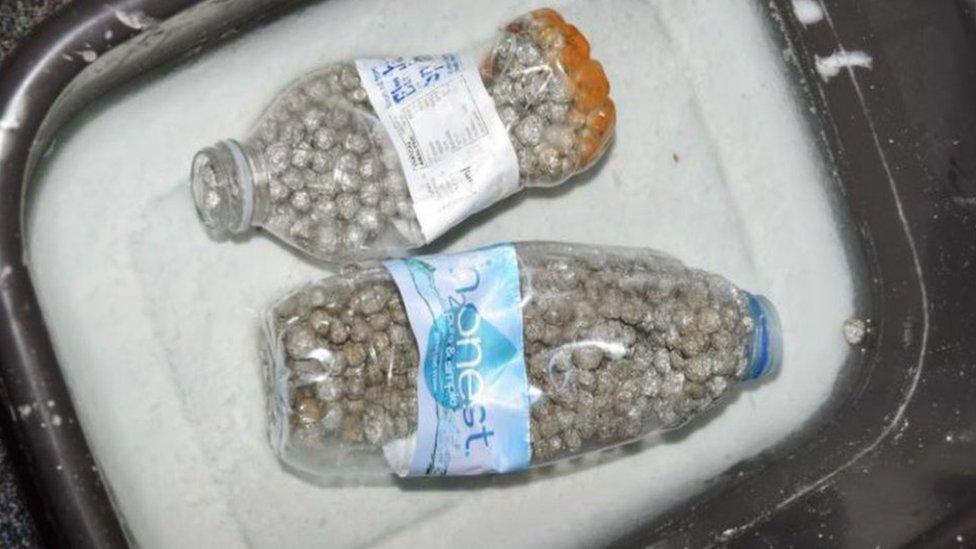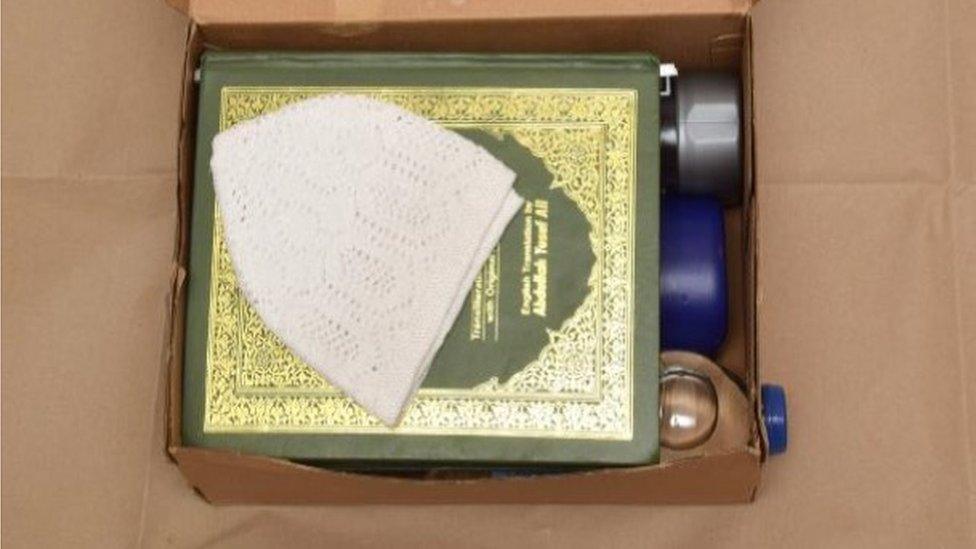Eastleigh boy, 14, 'researched bombs and made jihad video'
- Published

The boy filled bottles with shrapnel including foil balls and rusty screws, the court heard
A 14-year-old boy researched making shrapnel bombs and filmed a video in which he vowed to carry out "jihad", a court has heard.
The boy, from Eastleigh, Hampshire, developed "extremist and radical" views after experiencing a troubled home life, Leicester Crown Court was told.
The teenager, now 15, is accused of preparing to carry out a terrorist attack during the coronavirus lockdown.
He denies one count of preparing acts of terrorism.
Anne Whyte QC, prosecuting, said the defendant associated himself with the terrorist organisation calling itself Islamic State.
He researched how to make devices "designed to harm and kill other people" and had been experimenting with the idea of loading them with shrapnel, she said.
Notes on his phone described "the extinction of the western race", Ms Whyte added.
The boy investigated homemade items to make basic bombs and added some to his mother's Amazon wish-list, the court heard.

A shoebox shown to the jury included a copy of the Koran, a prayer cap and bottles
The jury was shown police photos from the teenager's home which Ms Whyte said showed bottles filled with rolled up foil balls and rusty screws.
Detectives also found hand-drawn diagrams of a "dead man's switch" and improvised explosive devices, the court was told.
Ms Whyte told the jury there were burn marks inside the boy's wardrobe where a device has been set off.
She said, in June police had found plastic bottles containing foil balls in both bedside cabinets in the teenager's room.
'Isolated and angry'
The court heard another bottle containing tin foil and screws was discovered in the upstairs hallway, a diagram of a homemade bomb was under his bed and officers also found several empty bleach bottles.
When a video of the boy saying why he would be carrying out jihad (holy war) was played to the jury, the teenager put his head in his hands.
Ms Whyte said the defendant had a troubled home life and may have felt "isolated and angry about his personal circumstances".
She said his radical views may have come from accessing "extremist material" online rather than from contact with another person.
The boy, who cannot be named for legal reasons, denies preparing acts of terrorism in four ways.
They include preparing and making shrapnel bombs, researching homemade explosives, making videos setting out how to make explosive devices and making a video setting out his wish to be a martyr.
The trial continues.